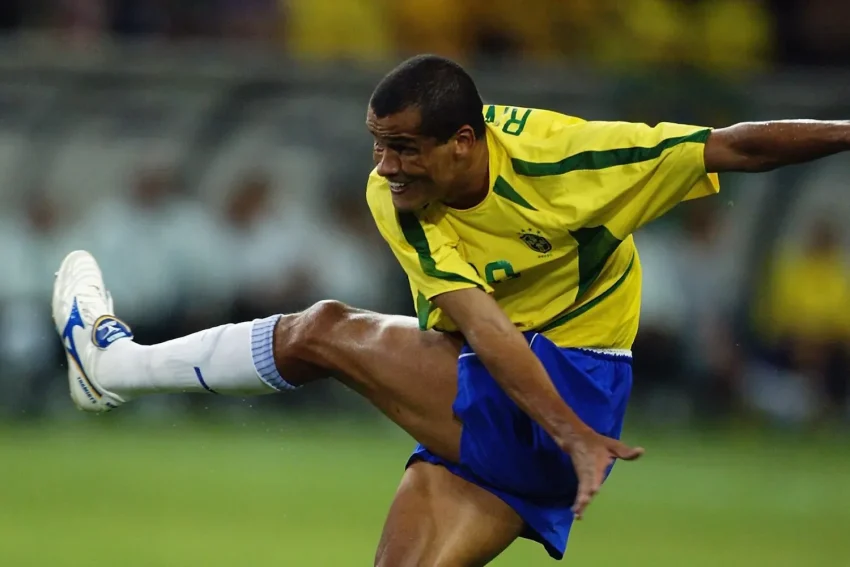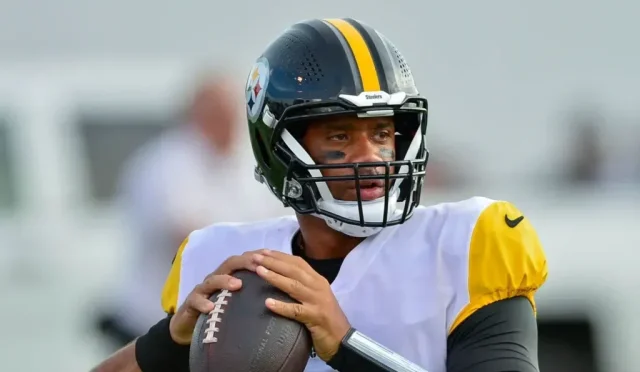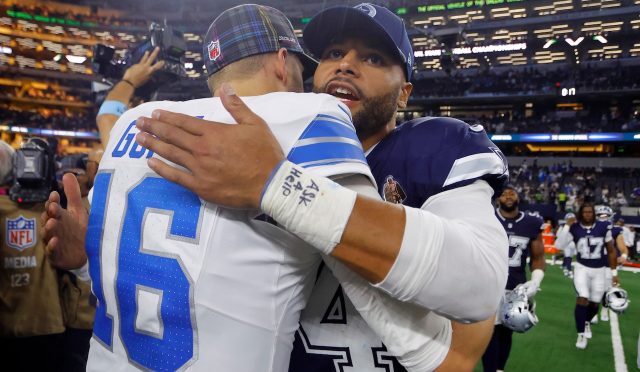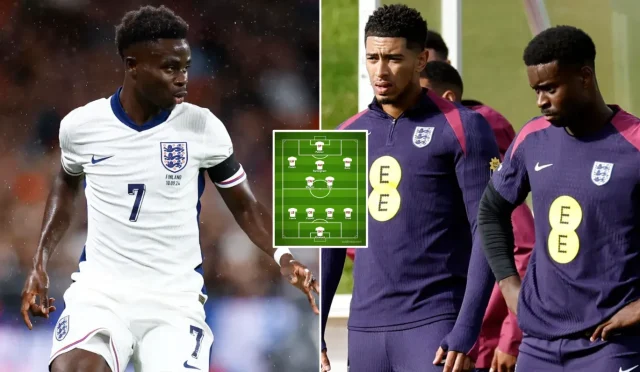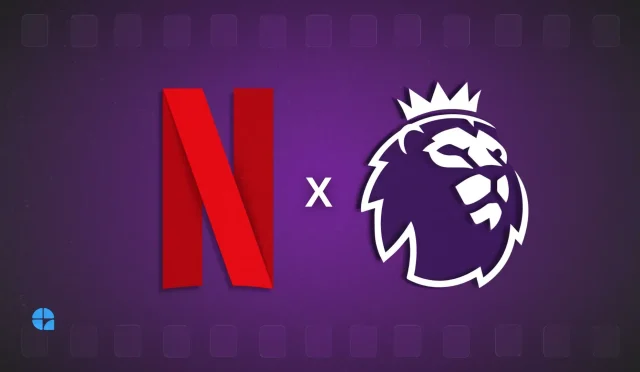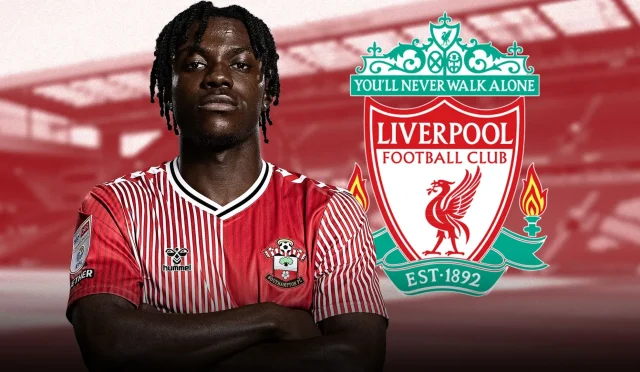Rivaldo’s football career stands as a testament to his extraordinary talent and resilience, marking him as one of Brazil’s iconic players. Born on April 19, 1972, in Recife, Brazil, he emerged from humble beginnings to become a pivotal figure in the Brazilian national team. Rivaldo made waves internationally during his time at FC Barcelona, where he not only won multiple championships but also garnered the FIFA World Player of the Year award in 1999. His incredible journey included winning the 2002 World Cup with Brazil, solidifying his legacy among the greatest in the sport. As fans reflect on his achievements, they remember Rivaldo not just for his prowess on the pitch, but also for his contributions to football history, making his retirement in 2014 a significant moment for the sport.
The illustrious journey of Rivaldo, a name synonymous with Brazilian football excellence, highlights his remarkable contributions to the beautiful game. Known for his exceptional skills and striking ability, Rivaldo’s rise began in Recife and took him to the highest echelons of international football. His time in prestigious clubs like FC Barcelona saw him clinch numerous accolades, reinforcing his status as a key player in significant competitions. Rivaldo’s influence on the Brazil national team was undeniable, especially during their successful World Cup campaign in 2002. As we delve into the depths of his storied career, we uncover not just his achievements but also the trials and triumphs that defined Rivaldo’s legendary presence in football.
Rivaldo’s Early Life and Emergence in Football
Rivaldo was born in Recife, Brazil, on April 19, 1972, into a humble family that faced many economic difficulties. From a young age, Rivaldo showed a passion for football. He honed his skills on the streets, where he played alongside other children, developing the technical prowess that would define his career. By the age of 17, he had made his professional debut with Paulista, marking the beginning of an extraordinary journey in the world of football.
Following his debut, Rivaldo’s talent quickly led him through the ranks of several Brazilian clubs, including Santa Cruz and Mogi Mirim. His time at Corinthians was particularly notable, as he showcased his ability to score remarkable goals and create opportunities for his teammates, catching the attention of larger clubs. Eventually, his remarkable performances paved the way for a significant move to Palmeiras, where he was instrumental in clinching the national championship in 1994.
Rivaldo’s Career Achievements
Throughout his illustrious career, Rivaldo earned numerous accolades that solidified his legacy as one of the top players of his generation. His conquest began in earnest during his time at FC Barcelona, where he was a key player in winning two Spanish League titles. Rivaldo not only dazzled fans with his scoring ability but also displayed exceptional playmaking skills, culminating in being the league’s top scorer in both 1997 and 1998. These accomplishments undoubtedly etched his name in La Liga history.
Rivaldo’s success was further amplified by his triumph with the Brazil national team. He played a pivotal role in the 1999 Copa América, leading Brazil to glory and later represented his country in the 1998 FIFA World Cup. Although Brazil faced defeat in the finals against France, Rivaldo’s overall contributions to the national team are celebrated, particularly for his exceptional performances and pivotal goals that helped secure Brazil’s third World Cup title in 2002.
The Rivaldo FC Barcelona Era
Rivaldo’s transfer to FC Barcelona in 1997 for a staggering $25.7 million marked a turning point in his career. At Barcelona, he immediately made an impact, becoming a key figure alongside other stars. His combination of technical skills, vision, and finishing ability made him a nightmare for defenders in La Liga and European competitions. Rivaldo was known for his stunning free-kicks and remarkable dribbles, which often left fans in awe and opponents bewildered.
During his time at Barcelona, Rivaldo secured multiple titles, including two La Liga championships. His contributions were vital, especially in the decisive matches that highlighted his capability to perform under pressure. His goal-scoring prowess also saw him win the prestigious FIFA World Player of the Year award in 1999, affirming his status among the football elite and making him a legendary figure in the club’s rich history.
Rivaldo’s Contributions to the Brazil National Team
Rivaldo’s tenure with the Brazil national team is a highlight of his professional career, showcasing his exceptional talent on the international stage. He made his senior debut in 1996 and quickly became a regular starter for the team. His dynamic playing style and ability to score crucial goals made him an essential asset for Brazil, particularly during the late 1990s and early 2000s when the team was brimming with talent.
Notably, Rivaldo played a crucial role in Brazil’s successful campaign at the 2002 FIFA World Cup, where he was instrumental in leading the team to victory. His collaboration with Ronaldo and Cafu turned the squad into one of the most formidable teams in history, culminating in Brazil lifting the trophy once again. Rivaldo’s legacy with the national team remains illustrious, as he continues to be celebrated for his contributions to Brazil’s footballing success.
Rivaldo’s Impact in European Football
After his successful stint with Barcelona, Rivaldo’s career took him to various prestigious clubs in Europe, including a brief time at AC Milan. Although his performance at Milan was less remarkable than that at Barcelona, Rivaldo still showcased glimpses of brilliance during his time in the Serie A. He played alongside some of the best talents in European football, enhancing his experience and further enriching his footballing career.
Following his European adventure, Rivaldo continued to leave an imprint in international football by moving to Olympiacos and AEK Athens in Greece. His switch to Europe not only helped elevate his status but also allowed him to solidify his skills, adapting to different leagues and styles of play. His time in Europe not only contributed to his personal development but also prepared him for his later roles back in Brazil, allowing him to mentor younger players.
The Legacy of Rivaldo Post-Retirement
After his retirement in 2014, Rivaldo remained involved in football, focusing on administrative roles and mentorship opportunities within the sport. His journey back to his first club, Mogi Mirim, highlighted his dedication to giving back to the sport that provided him with a platform to showcase his immense talent. As president of the club, he aimed to nurture new talents and inspire the next generation of Brazilian footballers.
Rivaldo’s legacy is far-reaching, extending beyond his on-pitch achievements. His influence as a player, leader, and mentor has left an indelible mark on Brazilian football. Even years after his retirement, Rivaldo’s story serves as an inspiration for aspiring footballers, reminding them of the commitment and resilience required to achieve greatness in the sport.
Rivaldo and the Evolution of Brazilian Football
Rivaldo’s career coincided with a transformative era in Brazilian football. With the emergence of incredible talents like Ronaldo, Rivaldo contributed significantly to Brazil’s attacking prowess on the world stage. Their collective skills not only entertained fans but also showcased Brazil’s style of play, characterized by flair, dribbling, and goal-scoring ability.
Through his journey, Rivaldo helped redefine the role of an attacking midfielder, influencing how the position is perceived in Brazil and worldwide. His contributions during crucial matches, especially in World Cups and international tournaments, solidified Brazil’s reputation for nurturing attacking talents and strong teams, laying a foundation that future generations of players continue to build upon.
Rivaldo’s International Recognition and Awards
Throughout his career, Rivaldo received numerous accolades that reflect his significant contributions to both club and international football. His award for FIFA World Player of the Year in 1999 stands as a testament to his remarkable abilities on the field. Additionally, he collected individual honors such as the Golden Boot for being the top scorer during major competitions, demonstrating his prowess as a forward.
Moreover, Rivaldo has been honored with various awards from different football organizations and journals that celebrate his exceptional skills and performances. His inclusion in all-time great lists and FIFA’s Best Player nominations further solidifies his standing in the football world, ensuring that his legacy will be remembered and cherished by fans around the globe.
Lessons from Rivaldo’s Individualistic Style
Rivaldo’s playing style was often described as individualistic, which sparked discussions about the balance between personal flair and team play in football. While he had the incredible talent to change games singlehandedly, some critiques pointed out his tendencies to adopt a hero-like role on occasion. Analyzing his career can provide valuable insights into the art of balancing individual brilliance with teamwork, especially in high-stakes situations.
His unique approach on the field served as a double-edged sword; while it allowed him to shine in certain instances, it sometimes led to criticisms regarding his effectiveness in collaborative play. Thus, studying Rivaldo’s career can inspire current players to find that balance between expressing their individuality and fostering teamwork, an essential lesson in modern football.
Frequently Asked Questions
What are some key highlights from Rivaldo’s football career?
Rivaldo’s football career is marked by significant achievements, including winning the FIFA World Cup in 2002 with the Brazil national team, two La Liga titles with FC Barcelona in 1998 and 1999, and being named FIFA World Player of the Year in 1999. His performance at the 1998 World Cup, where he reached the final, also stands as a career highlight.
How did Rivaldo contribute to the Brazil national team’s success?
Rivaldo was a crucial player for the Brazil national team, contributing to their World Cup triumph in 2002 and the Copa América victory in 1999. His skills as a midfielder-striker and his ability to score goals were instrumental in various international tournaments, solidifying his legacy in Brazilian football history.
What was Rivaldo’s impact during his time at FC Barcelona?
During his tenure at FC Barcelona from 1997 to 2002, Rivaldo was a standout player, helping the club secure two La Liga titles and becoming the league’s top scorer twice. His exceptional dribbling and free-kick abilities made him a fan favorite and a key figure in Barcelona’s attacking lineup.
When did Rivaldo retire from professional football?
Rivaldo announced his retirement in March 2014 at the age of 41 while playing for Mogi Mirim, his first professional club. However, he briefly came out of retirement the following year to help the team during a challenging period.
What were Rivaldo’s achievements in international competitions?
Rivaldo’s achievements in international competitions include winning the 1999 Copa América and earning a bronze medal at the 1996 Summer Olympics with the Brazil national team. He played a pivotal role in Brazil’s 2002 World Cup win, scoring critical goals throughout the tournament.
How did Rivaldo’s biography illustrate his rise from humble beginnings?
Rivaldo was born into a working-class family in Recife, Brazil, and started playing football at a young age despite financial challenges. His journey through various clubs, including Palmeiras and Barcelona, showcases his determination and talent, leading him to become one of the greatest footballers in Brazil’s history.
What was Rivaldo’s playing style like, and how did it affect his career?
Rivaldo was known for his exceptional dribbling skills, powerful shots, and free-kick capability. He typically played on the left side of the field, creating opportunities for himself and his teammates. While his individualistic style drew criticism at times, it also contributed significantly to his goal-scoring record and overall impact on the game.
Did Rivaldo have any notable rivalries or partnerships during his career?
Rivaldo had notable partnerships with players like Ronaldo during his time with the Brazil national team and formed a dynamic duo with Patrick Kluivert at FC Barcelona. His competitive spirit was often highlighted in rivalries against major teams in La Liga and during international tournaments.
Why is Rivaldo considered one of Brazil’s greatest footballers?
Rivaldo is regarded as one of Brazil’s greatest footballers due to his significant contributions to both club and national teams, his skillful play, and his ability to perform in crucial matches. His record of achievements, including a World Cup title and multiple awards, solidifies his place in football history.
What clubs did Rivaldo play for after leaving FC Barcelona?
After leaving FC Barcelona in 2002, Rivaldo played for AC Milan, then returned to Brazil briefly with Cruzeiro. He later moved to Greece, playing for Olympiacos and AEK Athens, before continuing his career in Uzbekistan and returning to his first club, Mogi Mirim.
| Key Aspect | Details |
|---|---|
| Early Life | Born on April 19, 1972, in Recife, Brazil, into a working-class family. |
| Career Start | Debuted with Paulista in 1989 after playing with Santa Cruz, Mogi Mirim, and Corinthians. |
| Major Clubs | Played for Palmeiras, FC Barcelona, AC Milan, Olympiacos, and AEK Athens. |
| National Team | Part of the Brazilian national team during the 1990s, winning the 1999 Copa América and participating in two World Cups. |
| Achievements | Key achievements include FIFA Player of the Year in 1999, top scorer in La Liga in 1997 and 1998, and participating in the 1998 World Cup final. |
| Retirement | Announced retirement in March 2014, continued in football as president of Mogi Mirim, briefly returned as a player in 2015. |
Summary
Rivaldo’s football career is emblematic of excellence in the sport, marked by his remarkable contributions to teams both at club and international levels. Throughout the 1990s, he not only dazzled fans with his skills but also secured his place as one of football’s all-time greats through his pivotal roles in Brazil’s successes, including the Copa América victory. Although his time at AC Milan wasn’t as impactful, his legacy continues to be celebrated, ensuring that Rivaldo will always be remembered as a footballing legend.

